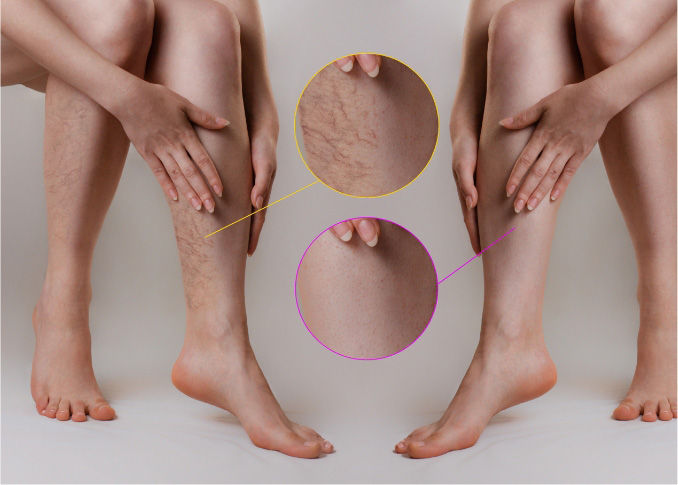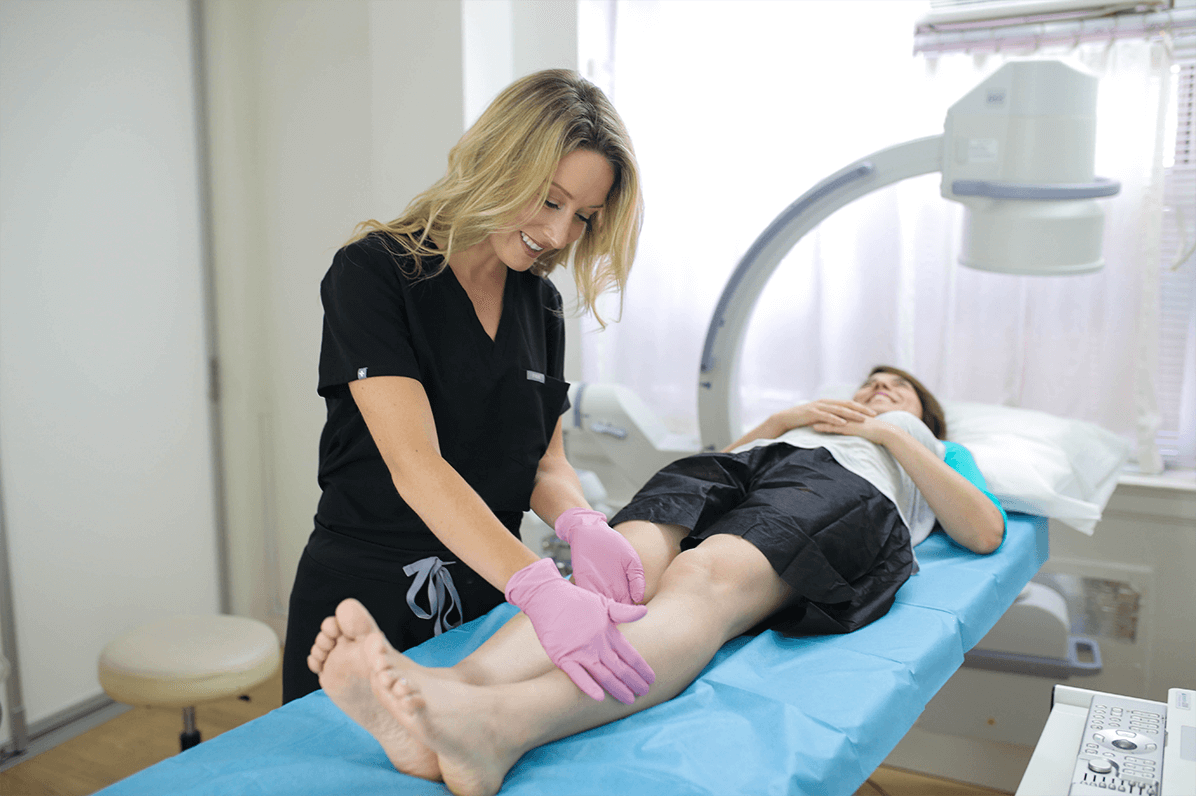What Advantage Do You Gain by Knowing When to See a Vascular Doctor?
Understanding when to consult a vascular doctor and identifying what kind of doctor treats veins can greatly impact your health and quality of life. This guide explores the benefits of seeking specialized care for vein-related issues, helping you recognize symptoms that warrant professional attention, and ensuring you receive appropriate treatment. Here’s a comprehensive overview of the key aspects to consider.
The Importance of Early Diagnosis
Why Early Diagnosis Matters
Early diagnosis is crucial for effective treatment of vascular conditions. Vascular doctors, also known as vascular surgeons, are specialists in diagnosing and treating diseases of the blood vessels, including veins and arteries. Recognizing symptoms early can prevent complications and improve treatment outcomes.
Common Symptoms of Vascular Issues
- Varicose Veins: These swollen, twisted veins often appear on the legs and can cause pain, swelling, and a heavy feeling in the legs.
- Chronic Venous Insufficiency (CVI): This condition occurs when veins cannot pump enough blood to the heart. Symptoms include swelling, leg pain, and skin changes.
- Deep Vein Thrombosis (DVT): A blood clot in a deep vein, usually in the legs, can cause pain, swelling, and redness.
- Peripheral Artery Disease (PAD): This condition affects blood flow to the limbs, leading to symptoms like cramping, pain, and weakness in the legs.

When to Seek Help
If you experience any of the above symptoms, it's important to consult a vascular doctor. Early intervention can prevent the progression of these conditions and reduce the risk of serious complications, such as ulcers or blood clots.
Understanding the Role of a Vascular Doctor
What Is a Vascular Doctor?
A vascular doctor, or vascular surgeon, specializes in the diagnosis and treatment of vascular diseases. They focus on conditions affecting the veins and arteries, including both surgical and non-surgical approaches. Their expertise includes:
- Diagnosis: Using imaging techniques and physical examinations to assess vascular health.
- Treatment Planning: Developing personalized treatment plans based on the specific condition and patient needs.
- Intervention: Performing procedures such as angioplasty, stenting, and vein stripping to treat vascular conditions.
Types of Vascular Treatments
- Lifestyle Changes: Recommendations on diet, exercise, and smoking cessation to improve vascular health.
- Medications: Prescriptions to manage symptoms and prevent complications, such as blood thinners or vein-strengthening drugs.
- Minimally Invasive Procedures: Techniques like endovenous laser therapy (EVLT) and sclerotherapy to treat varicose veins with minimal downtime.
- Surgical Interventions: Operations to repair or remove affected veins, such as vein stripping or bypass surgery.

Benefits of Specialized Care
Consulting a vascular doctor ensures that you receive care from a professional with specialized training and experience in treating vascular conditions. This expertise can lead to more accurate diagnoses, effective treatments, and better management of your condition.
Identifying the Right Specialist for Vein Issues
What Kind of Doctor Treats Veins?
Several types of healthcare providers may be involved in treating vein-related issues:
- Vascular Surgeons: Specialists in vascular conditions, including both surgical and non-surgical treatments.
- Phlebologists: Doctors who specialize specifically in venous diseases and treatments.
- Interventional Radiologists: Physicians who use imaging techniques to perform minimally invasive procedures on veins.
- Dermatologists: In some cases, dermatologists may provide treatment for vein-related skin conditions, such as spider veins.
Choosing the Right Specialist
When selecting a doctor for vein issues, consider the following factors:
- Specialization: Ensure the doctor has expertise in treating your specific condition.
- Experience: Look for a provider with a track record of successful outcomes for similar cases.
- Approach: Choose a specialist whose treatment philosophy aligns with your preferences, whether that involves surgical or non-surgical methods.
Consultation and Referral
Your primary care physician can provide a referral to a qualified vascular doctor. They can also help determine if a vascular specialist is needed based on your symptoms and medical history.
Preparing for Your Visit
What to Expect During Your Consultation
During your visit to a vascular doctor, you can expect:
- Medical History Review: The doctor will review your medical history, including any symptoms, previous treatments, and family history of vascular conditions.
- Physical Examination: The doctor will examine your veins and may perform tests to assess blood flow and vessel health.
- Diagnostic Testing: You may undergo imaging studies such as ultrasound, CT scans, or MRIs to evaluate the condition of your veins.
Questions to Ask Your Vascular Doctor
Prepare a list of questions to ensure you understand your condition and treatment options:
- What is the cause of my symptoms?
- What diagnostic tests will I need?
- What are my treatment options, and what are their benefits and risks?
- What lifestyle changes can I make to improve my condition?
- How often will I need follow-up visits?
Managing Expectations
Understand that treatment for vascular conditions may require ongoing management. Be prepared to follow your doctor's recommendations for lifestyle changes, medications, or follow-up procedures to achieve the best results.
The Benefits of Seeing a Vascular Specialist
Enhanced Care and Expertise
Seeing a vascular specialist provides several advantages:
- Targeted Treatment: Specialists offer precise treatments tailored to your specific vascular condition.
- Advanced Techniques: Access to the latest technologies and minimally invasive procedures that may not be available from general practitioners.
- Comprehensive Management: A holistic approach to managing vascular health, including preventive care and lifestyle modifications.
Improved Quality of Life
Effective treatment of vascular conditions can significantly improve your quality of life by reducing symptoms, preventing complications, and enhancing overall well-being. Early intervention and specialized care can lead to better outcomes and a more manageable condition.
Conclusion
Knowing when to see a vascular doctor and understanding what kind of doctor treats veins are essential for maintaining optimal vascular health. Early diagnosis and specialized care can make a significant difference in managing and treating vein-related conditions. By seeking the right professional and following their recommendations, you can ensure that you receive the best possible care and improve your overall quality of life.
If you suspect you have a vascular issue or need specialized care, don’t hesitate to consult a vascular doctor. Their expertise can provide valuable insights and effective treatments to address your concerns and enhance your health.
Comments
Post a Comment